Sony seemingly decided a while back that it doesn't need to reinvent the wheel with every new version of its flagship smartphone, and each successive version of its flagship Xperia 1 mobile only brought a few small tweaks and changes.
The Sony Xperia 1 IV is arguably the biggest upgrade we've seen in the series though, with lots of extra functions and tools to give it an edge over its predecessors and rivals. This is the closest we've seen Sony come to competing with the big dogs like Apple and Samsung, and we can really see creative professionals opting for the new Xperia over the Samsung Galaxy S22 Ultra or iPhone 13 Pro Max.
It's hard to say what the flagship improvement is, as that'll depend on your medium of choice.
Photographers will love the new continuous optical zoom, letting you hop between 3.5x zoom (85mm) and 5.2x (125mm) without using digital zoom, which is fantastic for telephoto art. Videographers will like the ability to record at 4K and 120fps on all three rear lenses - including the new zoom one - and the front-facer too. Musicians will be fascinated by the new Music Pro recording app which lets you record your voice or instrument and mix and layer them on the spot.
Sony is also pitching this device to people who like their entertainment - there's a built-in Bravia Core app (like on the company's TVs) as well as a game streaming app which should be useful for video game streamers who play mobile games. Plus, there are plenty of built-in entertainment apps from loads of brands.
The phone sounds great, and that list of features will impress loads of people, but this still isn't a perfect phone. Our biggest gripe is the price - given that many countries are in a cost of living crisis, a price increase over the Xperia 1 III seems a curious move, especially given that many cheap phones offer mobile-based creatives plenty of useful tools nowadays.
Presumably, Sony is hoping that the Xperia 1 IV's unique features will become indispensable to professional photographers, videographers and other artists, enough to justify the phone's high price. Judging by the fact this is the fourth-generation Xperia 1, and the company hasn't seen fit to lower its pricing, it could well be right.
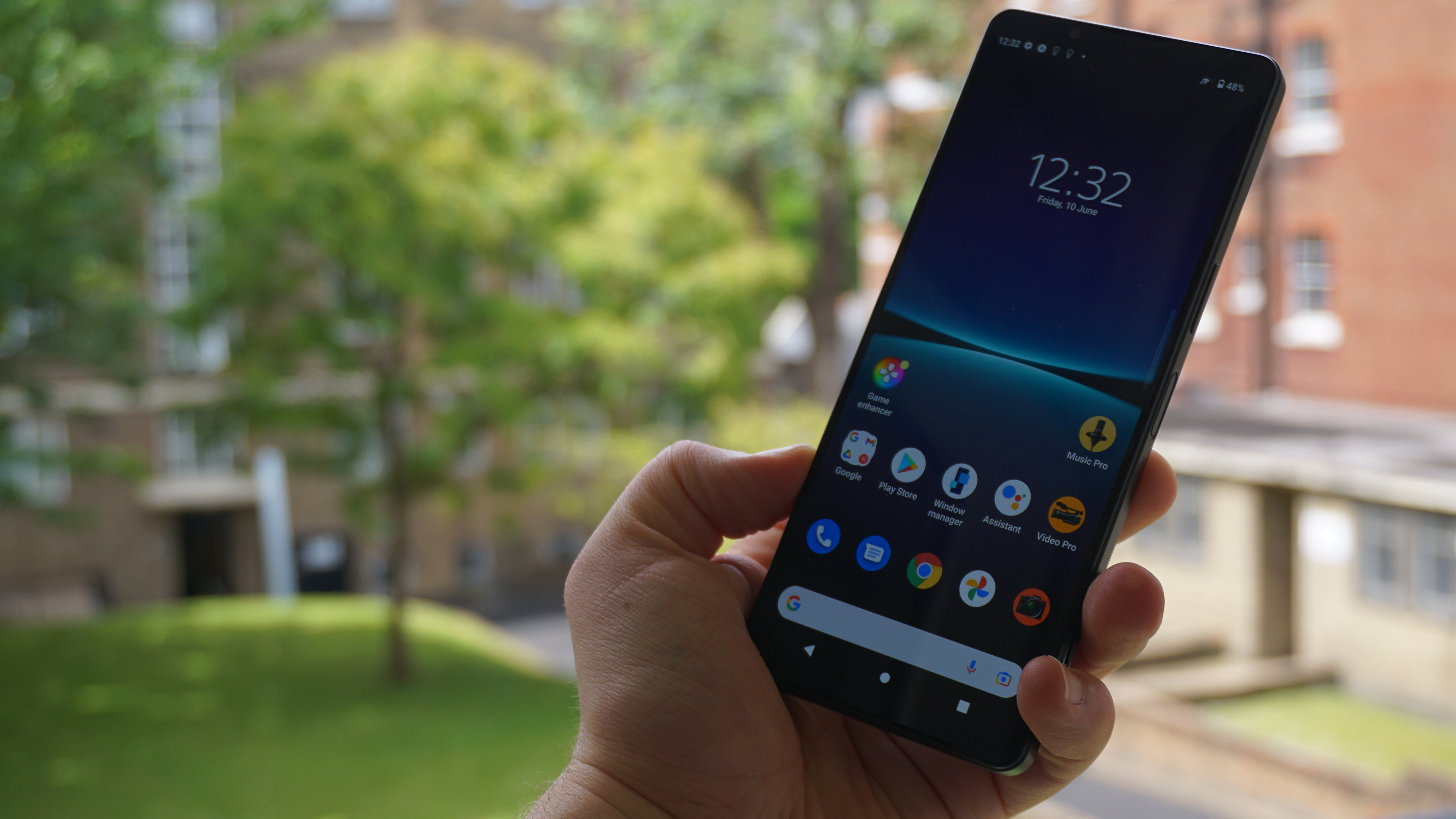
Sony Xperia 1 IV price and availability
In the US the Sony Xperia 1 IV costs $1,599.99, while it's £1,299.99 in the UK (and not going on sale in Australia). The reason for that price discrepancy is in the storage sizes - the US is only getting a 512GB model while the UK is only getting a 256GB version.
For context the Xperia 1 III cost $1,299.99 / £1,199.99 - that was for a 256GB model in both regions, so in the UK we can readily call the new version pricier, but in the US a direct comparison is a little more complex (though the IV is still much pricier, of course).
In Europe - including the UK - the Sony Xperia 1 IV goes on sale on June 16, but you're waiting until September 1 in the US. And in Australia, you're going to be waiting just a tiny bit longer (read: forever) since Sony hasn't sold its last few generations of mobiles there.
Sony Xperia 1 IV design and display
Sony has maintained the same look for its Xperia 1 IV that the past few versions of Xperia have had - it's a tall, angular device with flat edges and an understated design. This phone comes in black, purple and white, though we tested the less-attractive black version.
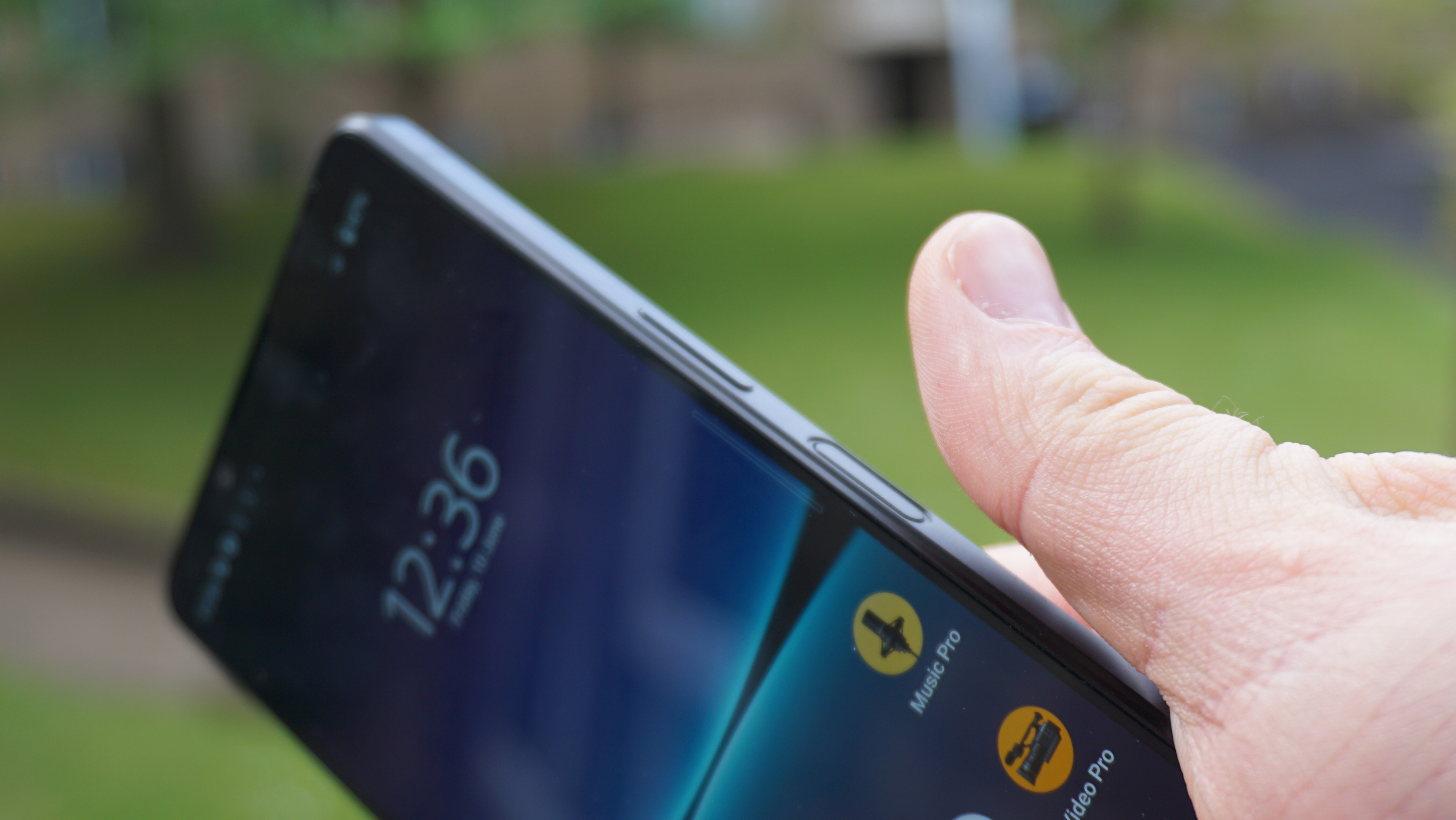
The camera bump on the back looks indistinguishable from on the 1 III, and there's still a USB-C port, 3.5mm headphone jack and expandable storage - you don't need a SIM tool to take out the SIM and microSD card slot, which should be useful for storage-card-juggling creatives.
On the right edge of the phone is the volume rocker, fingerprint-sensor-slash-power-button and a shutter button for the camera. As with previous Sony phones, we found the fingerprint sensor drastically worse than on other mobiles - even though we registered our thumb multiple times, the scanner regularly failed to pick it up when we tried to unlock the phone. Every time we wanted to use the device, we had to pick up and lower our digit multiple times - very annoying!
While the Sony Xperia 1 IV design hasn't seen many changes from previous models - something Sony fans probably don't mind - the display has seen one major upgrade.
On paper, the specs here are the same as before - it's a 6.5-inch 4K 120Hz panel - but its max brightness is 50% higher than on the Xperia 1 III, making it better for viewing outdoors (or to a lesser extent anywhere, for that matter).
It's a great-looking display, and the 4K resolution will appeal to people who love to download high-res movies - though many apps, especially in the gaming sphere, don't actually support this high resolution on mobiles. Sony is the only manufacturer to utilize it, after all.
Sony Xperia 1 IV cameras and battery life
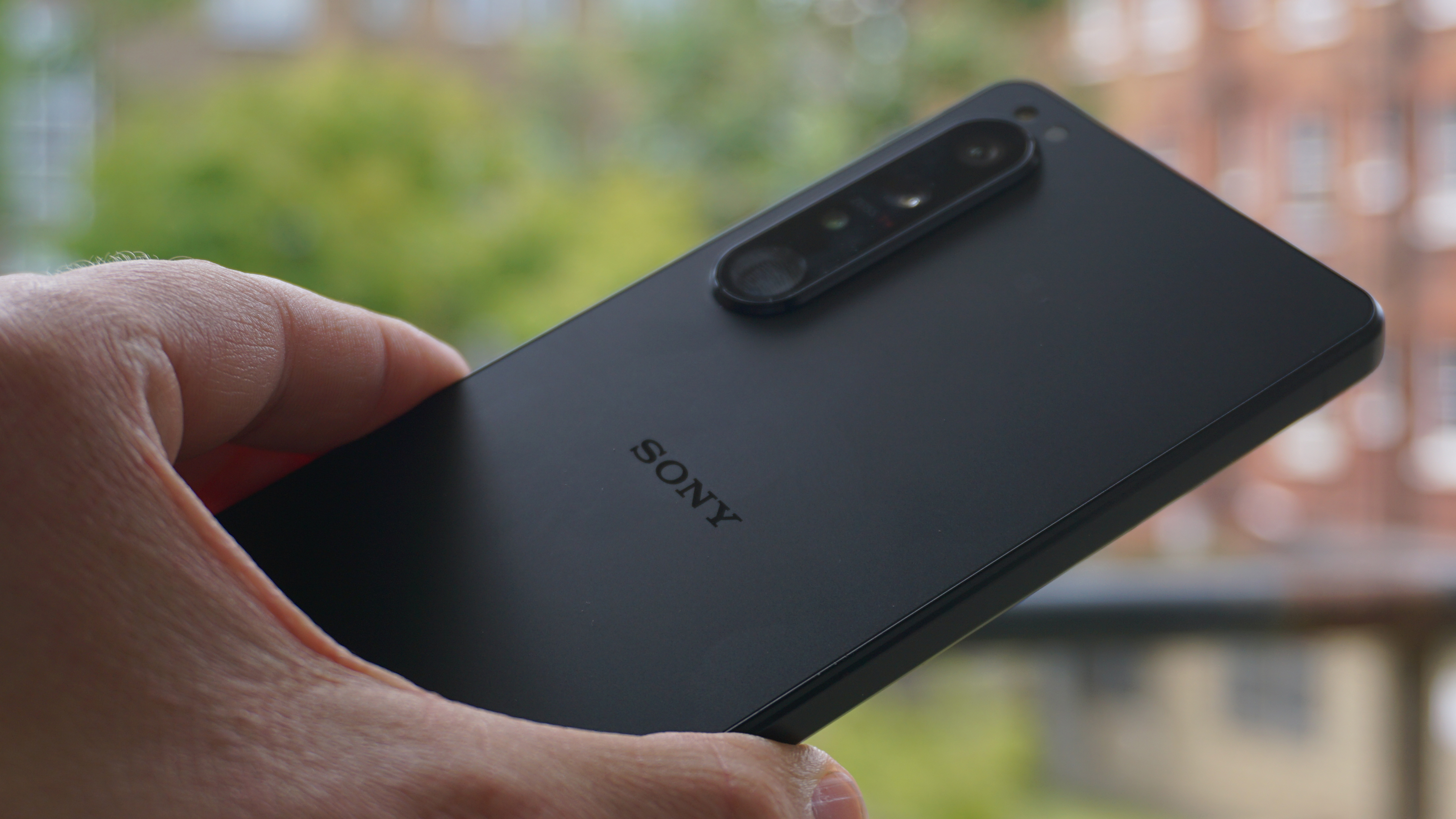
The Sony Xperia 1 IV has the same rear camera sensors as the last-gen model did - that means there are three 12MP snappers. They're joined by a 24mm main, 16mm ultra-wide and continuous optical telephoto lens, as well as a 0.3MP 3D Time-of-Flight sensor.
That continuous optical telephoto lens is one of the key selling points of the phone, as it lets you travel between 3.5x zoom (or 85mm) and 5.2x zoom (125mm) optically, without having to use digital zoom or cropping like most other mobiles use.
As a result, zoom photography is much more feasible as a way to snap subjects, as you have some wiggle room with your framing. Telephoto isn't just good for capturing far-away images, as its lovely-looking depth effect is attractive for portrait shots too, so the Sony should also be useful for this.
From a brief play around with the cameras, the main and ultra-wide seem comparable to the equivalent versions on previous Sony flagships, but the telephoto is genuinely great fun to play around with. This is a hands-on review after all, so expect loads of camera samples (and a more nuanced analysis) for our full review.
Videographers also have a bone thrown their way, as all three of these lenses support 4K 120fps video recording, letting you enjoy the long-distance or ultra-wide look for video. This gives the Xperia an extra boost of versatility for film-making.
This also applies to the front-facing camera, which has seen an improvement from the 1 III - it has a 12MP resolution, over 8MP on the last model, which allows for 4K and also higher-res photos.
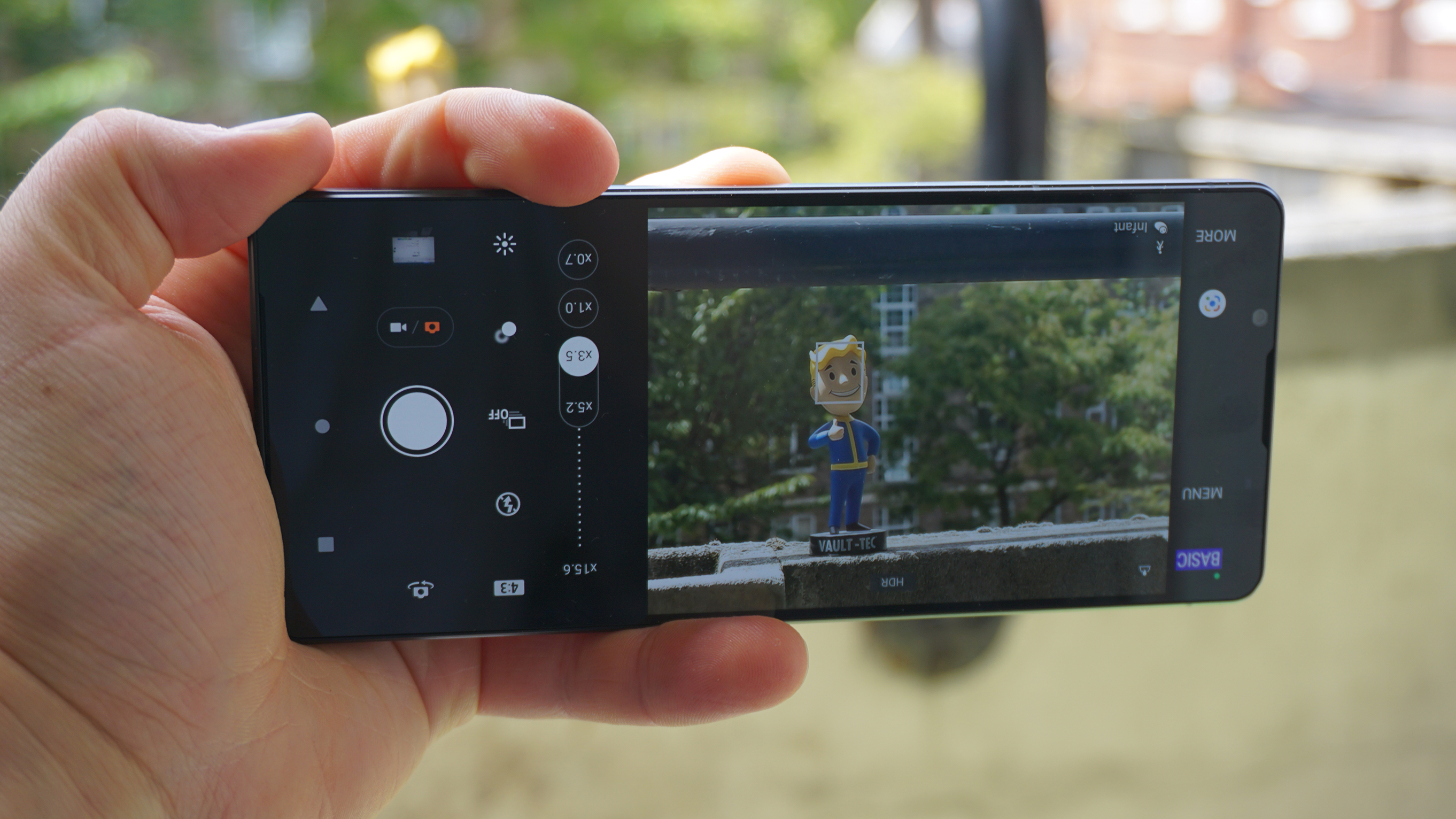
If you're not used to Sony Xperia phones, you might find the Xperia 1 IV daunting for photography. While most Android phones have lookalike camera apps, the Xperia's is based on the user interface from Alpha cameras, so you have to hunt around for functions you might usually find easily - though a Basic mode reduces this issue.
There's also the return of the Cinema Pro app, which allows for Alpha-like video recording with lots of extra tools than in the standard camera app - its only change in the Xperia 1 IV is the aforementioned video recording changes.
There's also a Video Pro app, which looks almost identical, and we're not really sure what the differences between these two are. Surely Sony could combine them?
In terms of battery life, we haven't been able to test the handset for a full battery cycle yet, but its 5,000mAh capacity (up 500mAh from last year) should let you get a full day of use more comfortably than before. Don't expect two days of use though.
Charging is 30W, which is pretty slow in 2022 when we've seen phones go up to 150W, but Sony says it's focusing on ensuring the battery won't wear out for a long time (which fast charging can affect).
Sony Xperia 1 IV performance and specs
Stock Android fans rejoice, as Sony has stuck to a clean version of Google's software. This Xperia comes with Android 12 pre-installed but will likely get one or two upgrades.
The Sony Xperia 1 IV packs the top-end Snapdragon 8 Gen 1 chipset, which provides lots of processing power for video editing and gaming.
We didn't get time to test the Xperia for game-playing, but we've previously found 21:9 aspect ratio devices (like this one) really useful for the display space they provide. So we're looking forward to running many rounds of games using the display.
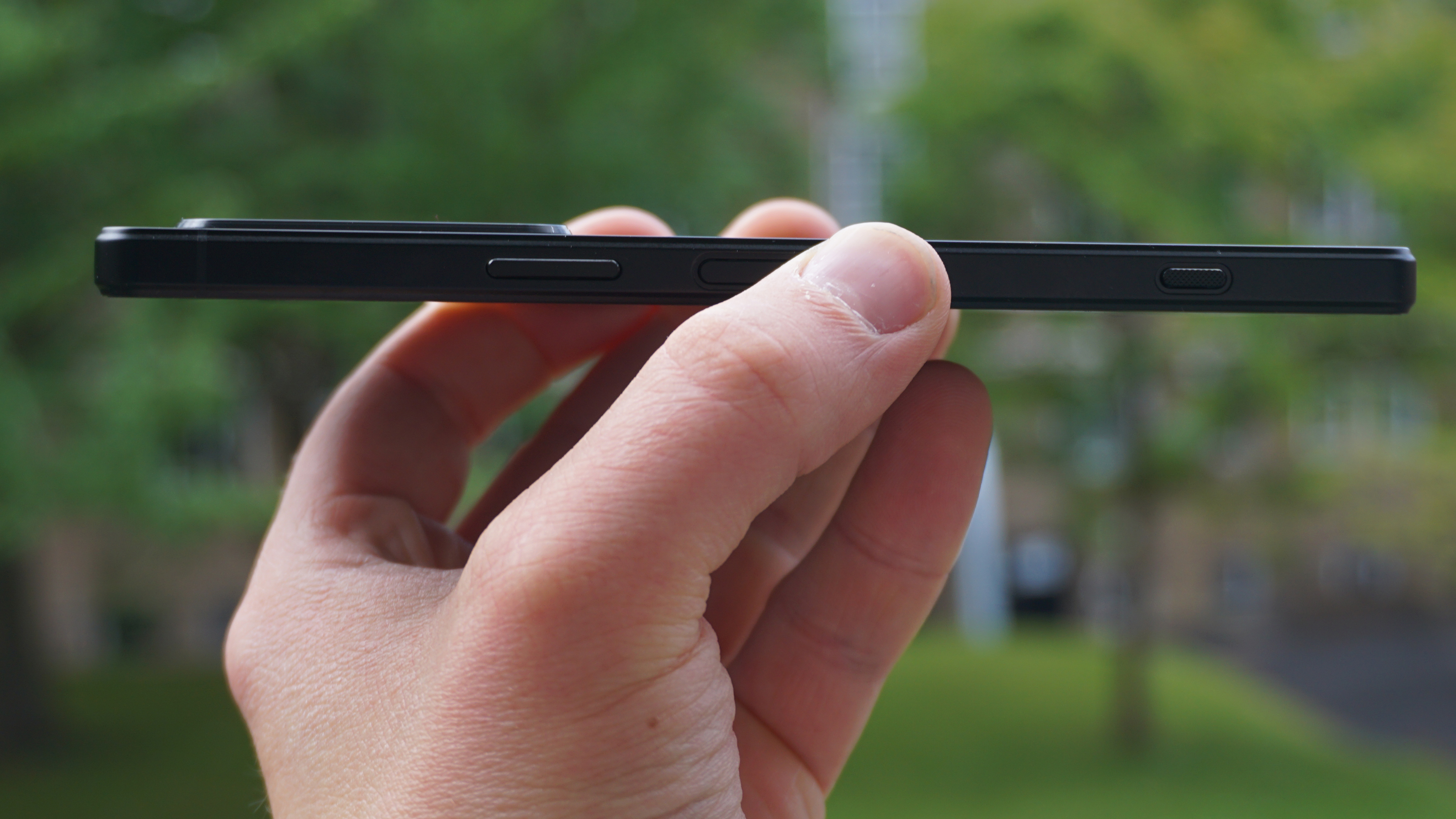
The 12GB of RAM and 5G connectivity will help too. As we've mentioned, the 1 IV in the UK gets 256GB of built-in storage while in the US there's 512GB, but both have a microSD card slot for up to 1TB extra.
Video game streamers - which isn't us, unfortunately - will enjoy the plenty of extra modes designed to make streaming mobile games easier. These include easier functionality for capture cards and the ability to see stream comments while you're playing.
Another intriguing mode is Music Pro, which is an advanced form of the audio recording app many phones have. You can record multiple tracks of yourself singing, talking or playing an instrument, edit each layer, and use cloud computing to clean the audio up.
On the topic of extra modes, there's Bravia Core, from Sony's Bravia TVs. This is basically a streaming app for the company's media, and with the phone you get a year of unlimited streaming from its main catalog plus five downloads from its blockbuster one. Time for us to finally see all the Spider-Man films!
There are actually plenty of non-Sony pre-installed apps too: Netflix, Prime Video, Amazon Shopping, Tidal, LinkedIn, Booking.com and Facebook were all already on the device.
Some of these make sense - Sony is positioning the Xperia 1 IV as an entertainment powerhouse as well as a creative one - but why Booking.com? The pre-installed apps do verge on bloatware in some cases.
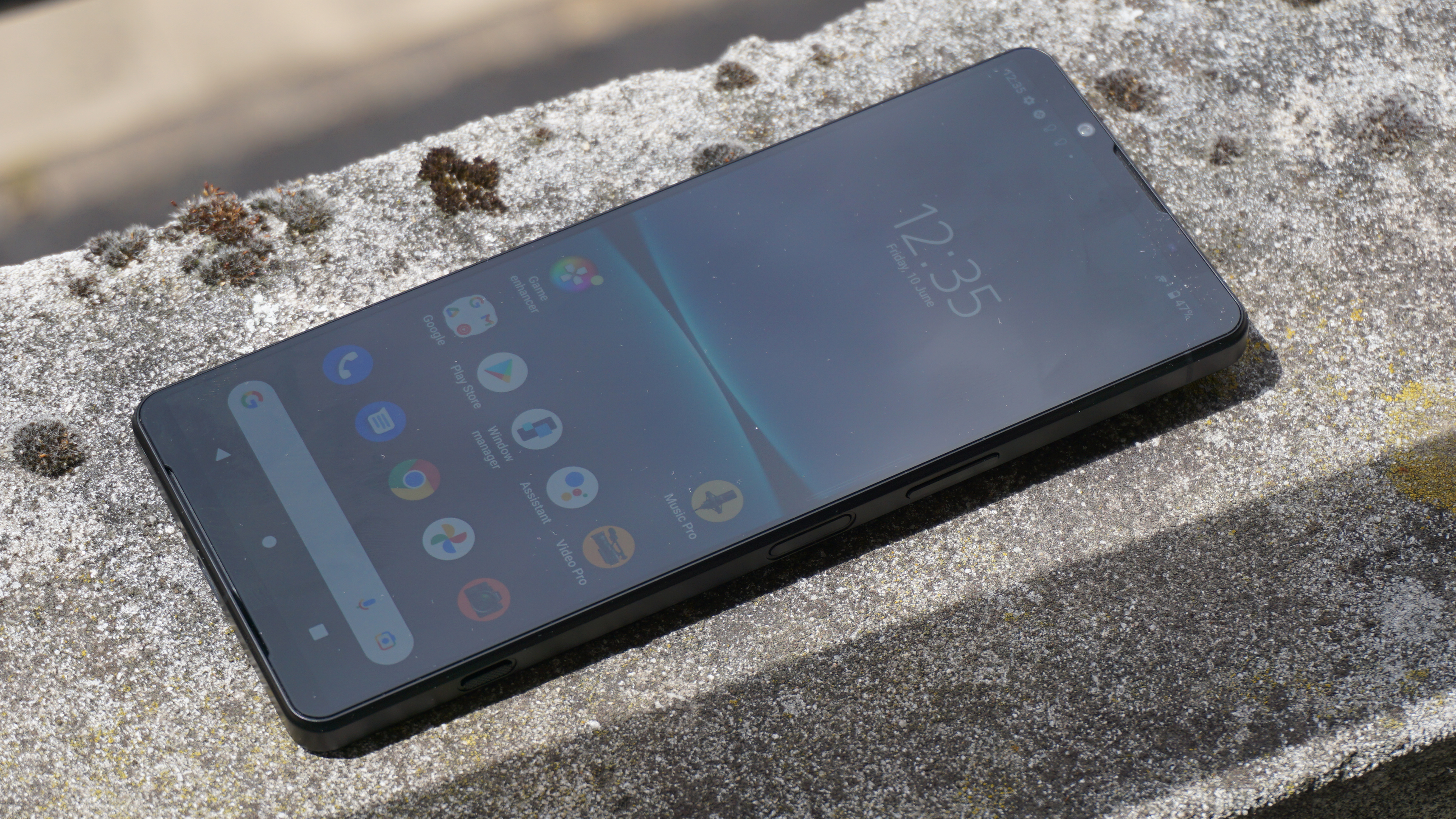
Early verdict
We're certainly looking forward to testing all the Sony Xperia 1 IV's different creativity tools - we've already got countless experiential features springing to mind, so expect many write-ups in the future.
While the Sony Xperia 1 IV is a powerful tool for creatives and entertainment fans, its price (and feature-set) does ensure it's just a niche device now though, so we don't expect everyone to get excited for this kind of phone.
But if you're a professional photographer or videographer, and need a smartphone that you can rely on, this is a great option, and we imagine it'll hit our list of the best camera phones very soon.
from TechRadar - All the latest technology news https://ift.tt/iqQV8Fh

No comments:
Post a Comment